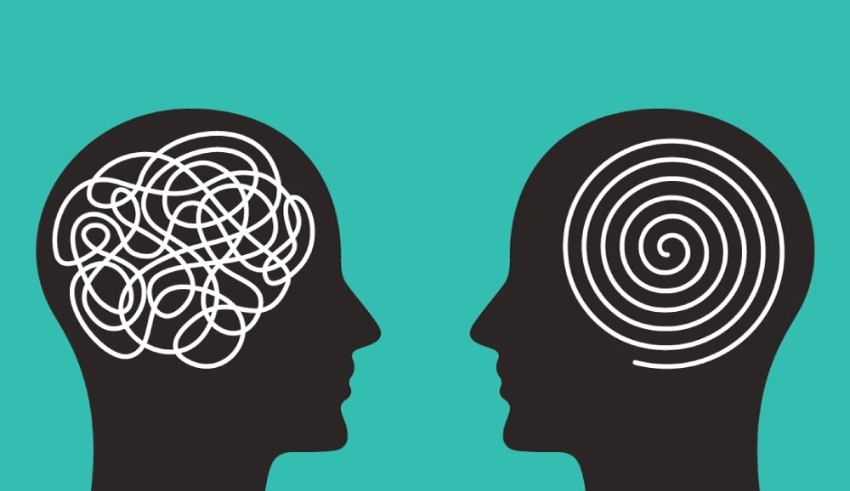
![]() US: Mental health disorders including depression and anxiety often have two primary treatment options: talk therapy and medication. The lifestyle choices that might have a significant impact on our mental well-being are rarely discussed.
US: Mental health disorders including depression and anxiety often have two primary treatment options: talk therapy and medication. The lifestyle choices that might have a significant impact on our mental well-being are rarely discussed.
In spite of the fact that many people do not suffer from a mental health disorder, they may nevertheless be looking for ways to enhance their mood, reduce stress, and better manage their mental health.
It can be empowering to transform your life for the better and make great changes. We all have the power to make small, meaningful improvements, even if time and money constraints prevent us from doing so.
To get you started, here are five simple lifestyle changes:
Eat better and exercise
Eating a diet rich in complete foods such as a wide variety of vegetables and legumes as well as lean meat and seafood is essential to a healthy mind. There are a lot of necessary fatty acids in these foods.
Additionally, foods high in polyphenols, such as berries and tea, as well as dark chocolate, wine and certain herbs, have a vital role in the functioning of the human brain.
Swimming, running, lifting weights, and playing sports are just a few of the various sorts of physical activity that might be healthy. Taking a quick walk or performing some physical chores can be a good first step.
Mental well-being can be further enhanced by engaging in activities that include both social connection and exposure to outdoors.
The American Council on Exercise recommends at least 30 minutes of moderate physical activity five days a week (about 150 minutes total over the week). Even small bursts of movement, on the other hand, might boost one’s mood right away.
Lessen your vices
Problem drinking and substance abuse need to be dealt with, and this is a no-brainer when it comes to good health. People who abuse alcohol and other drugs are more likely than the general population to suffer from mental illness, and their health consequences are significantly worse.
Some studies have suggested that a moderate amount of alcohol use (especially wine) may help prevent depression. However, new research has shown that light alcohol use does not have any beneficial benefits on the brain.
One of the first steps in quitting smoking is the cessation of a withdrawal-craving cycle, which has a tremendous effect on the mood of those addicted to nicotine. When you stop using nicotine, your brain’s chemistry will adjust, although it may take some time.
As a side effect of quitting smoking, people report feeling happier and less stressed.
Related Posts
Get enough sleep
Techniques to increase sleep quality and treat insomnia are the goal of sleep hygiene. There are several things you can do to improve your sleep, such as decreasing the amount of caffeine you consume, minimizing your exposure to the bed, and waking up at the same time every day.
It’s important that we allow ourselves some degree of freedom in this area because some people are naturally more morning or night oriented (especially with work schedules).
If you can’t go asleep within 20 minutes, it’s best to get up and do something relaxing (with as little light and stimulus as possible) until you’re exhausted enough to fall asleep on your own.
Additionally, limiting light exposure before bedtime is a key component of a good night’s sleep. Melatonin production is boosted as a result, making it easier to drift off to sleep.
Stress management necessitates a sufficient amount of down time and leisure activities. Even if you don’t participate in any physical exercise, you can still benefit from a hobby.
Take a walk
Sunshine has a positive effect on our mood. Serotonin levels can be boosted by adequate exposure to the sun’s rays. Vitamin D, which has a positive influence on mental health, is also boosted by exposure to sunlight at the right time of day.
Sun exposure advantages must be weighed against the danger of skin cancer, thus follow the guidelines for sun exposure based on the time of day/year and the color of your skin.
In addition to reducing your exposure to “noise” pollution and environmental toxins, chemicals, and pollutants, you may want to reevaluate how much time you spend on your phone, computer, and watching TV.
Spending time in nature can serve as a natural remedy. Self-esteem and happiness can be boosted by spending time in nature, according to research. “Forest bathing” is a term used in several Asian countries to refer to the practice of relaxing in the woods.
Have people around you
Rather than serving as a substitute for medication or therapy, patients can supplement their care by making positive lifestyle changes.
Many alterations to one’s way of life might be beneficial, but if used as a crutch, some (such as avoiding junk food, alcohol, or quitting smoking) can be difficult. Professional help may be required to handle them delicately.
Advancing a strict abstention or a rigorous diet or exercise regimen may produce further pain and shame if you are unable to meet these standards. So don’t put too much pressure on yourself.
Consider how you feel after eating healthfully, getting a good night’s sleep, or spending time with a friend in nature.





























